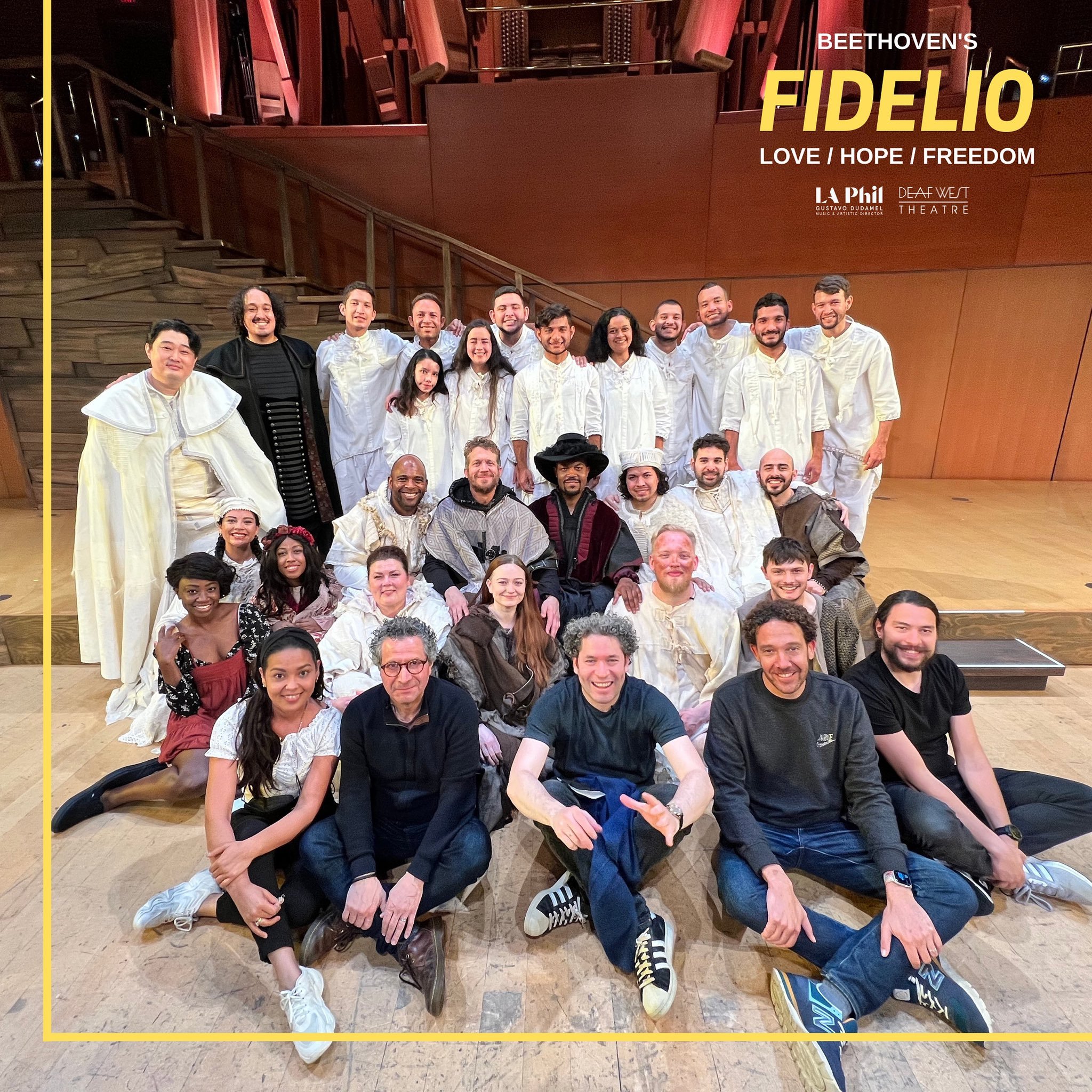LA Phil's 'Fidelio' Is an Opera Hit for the Deaf
/By Truman C. Wang
4/21/2022
Last week’s Fidelio, a collaboration of LA Phil and the Deaf West Theater, was a singular achievement to bring opera to the hearing impaired community. Judging from the many in attendance who were enjoying themselves and applauding in sign language (shaking both hands in the air), I am happy to report opera has gained a new group of fans heretofore finding the art form all but inaccessible.
How this project came to fruition was as improbable as the opera’s creation in 1805 by its deaf composer. Given that this semi-staging was created for both deaf and hearing audiences, each character was also played by a deaf actor, bringing their ‘gestural and emotional poetry’ (in director Alberto Arvelo’s words) to the role. In an ensemble situation, as the music grew louder, more deaf actors entered the scene to create a ‘visual crescendo’. The deaf actors also handled all the dialogs in sign language with projected supertitles while sharing the same stage with the singers. For the deaf audience, the supertitles also included musical cues such as “overture”, “musical intro”, “musical outro”, etc. It was an intricate balancing act for the hearing and deaf cast of players that worked out surprisingly well.
Among the deaf actors, Amelia Hensley (Leonore), Gregor Lopez (Rocco), Josh Castille (Florestan) and Gabriel Silva (Don Pizarro) stood out for their fine acting with gestures and emotions, evoking true terror in the dungeon scene as well as various conflicting emotions in the Act 1 quartet, “Mir ist so wunderbar”. They were joined by a ‘chorus’ of deaf actors as prisoners who persuasively gestured their plight and yearning for freedom.
On the musical side, Gustavo Dudamel launched the overture in an ‘overdrive’ mode, conveying the tensions of what’s to come. The strings and even the timpani played with minimal vibrato, in the period style of Beethoven’s time. So while the deaf actors on stage were trying to channel Beethoven’s spirit, the conductor was attempting to do the same musically in the pit. (Yes somehow they were able to create an orchestra pit on the stage of the Disney Hall.) The LA Phil was in exemplary form, most notably the joyous oboe in Florestan’s prison aria that brightened up an otherwise dark dungeon scene.
As the faithful wife Leonore, soprano Christiane Libor impressed with her warmth of tone and technical mastery. There are few Leonores, in my memory, who sing with so much passion and attention to detail in her Act 1 aria “Abscheulicher” (accompanied by principal horn Andrew Baine’s equally dramatic horn obbligato). Just as rewarding was her antagonist in the form of the menacingly sung Pizarro of baritone Shenyang. Tenor Ian Koziara, a vocally reliable and confident Florestan, nonetheless lacked the deep pathos and inner feeling the role demands.
Rounding out the excellent cast of singers were baritone Ethan Vincent as a noble-voiced Don Fernando, bass Ryan Speedo Green as the equivocal jailer Rocco, tenor José Simerilla-Romero as his son Jaquino, and soprano Gabriella Reyes as a stylish and brightly sung Marzelline.
The LA Master Chorale, hidden in the seats behind the stage, gave a stirring performance of the prisoners’ chorus, full of angst, dreams and hope.
Truman C. Wang is Editor-in-Chief of Classical Voice, whose articles have appeared in the Pasadena Star-News, San Gabriel Valley Tribune, other Southern California publications, as well as the Hawaiian Chinese Daily. He studied Integrative Biology and Music at U.C. Berkeley.

